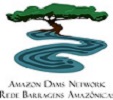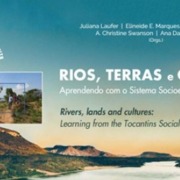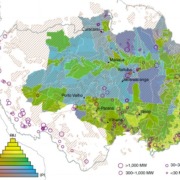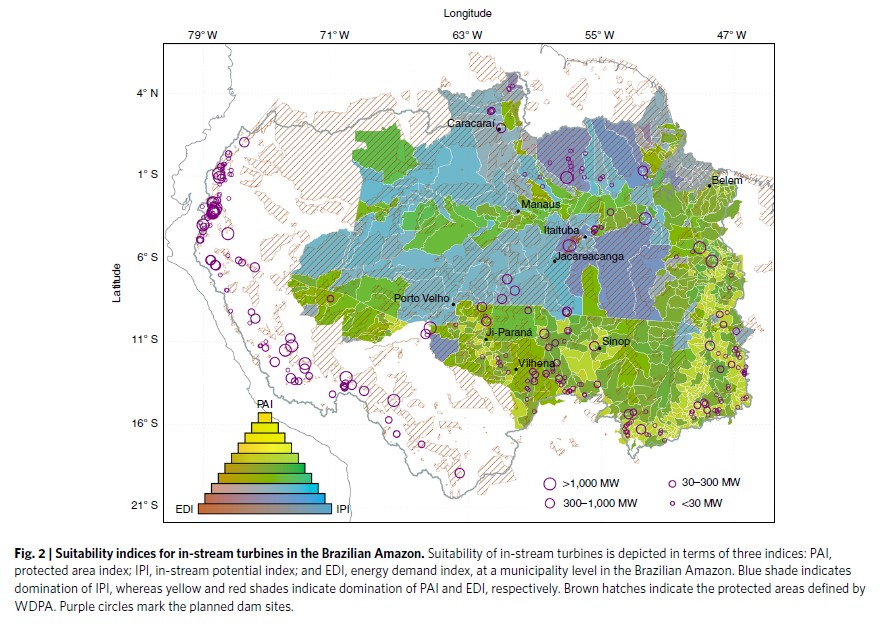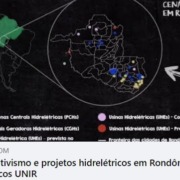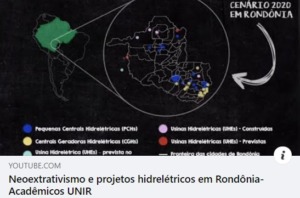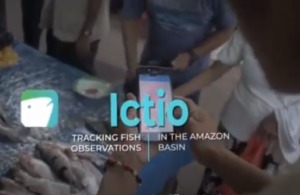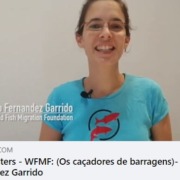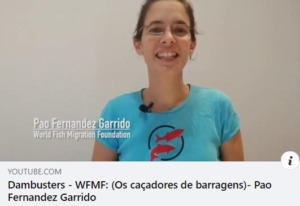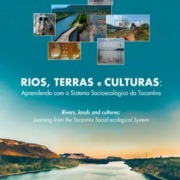Hydroelectric dams and Amazonian traditional peoples: elements for a preliminary and introductory prognosis
Rios, Terras e Culturas: aprendendo com o Sistema Socioecológico do Tocantins (Rivers, lands and cultures: Learning from the Tocantins Social-ecological System)
Juliana Laufer; Elineide E. Marques; Simone Athayde; A. Christine Swanson; Ana Daisy A. Zagallo (Orgs.)
The third section of this ebook, “Speaking to the experts (the experience of researchers)”, consists of four chapters, adapted from experts’ talks at the workshop.
Chapter 3.1 talks about “Hydroelectric dams and Amazonian traditional peoples: elements for a preliminary and introductory prognosis”. The text shows, through the information extracted from the National Energy Plan – PNE 2030, produced by EPE, that the Amazon is the new frontier for hydroelectric power generation. The northern region of Brazil has 343 (more than 50%) of 676 total indigenous territories in the countries, and yet is at the center of the national efforts to expand hydroelectric plants. In view of this, concerns are raised with Indigenous and Quilombola communities, as well as riverside dwellers, fisherpeople and a whole range of communities that may be impacted by these ventures. This full range of affected people and communities are not considered in the criteria that define environmental restrictions. By 2015, the Palmares Cultural Foundation has identified 2,607 Quilombola communities in Brazil. However, according to data from the same year, only 73 communities had their land recognized. This demonstrates another serious problem with the implementation of hydroelectric dams: there is no security for these communities after the dams are built, and the government refuses to recognize Quilombola and Indigenous areas because of the energy expansion policies.
A terceira seção do e-book- “Conversando com os especialistas (A experiência dos pesquisadores)”, é composta por quatro textos, editados a partir das conferências dos especialistas do workshop.
O capítulo 3.1, fala sobre “Hidrelétricas e povos tradicionais na Amazônia: elementos para um prognóstico preliminar e introdutório”. O texto mostra, através das informações extraídas do Plano Nacional de Energia – PNE 2030, produzido pela EPE, que a Amazônia é a nova fronteira de geração de energia hidrelétrica. O Brasil possui 676 terras indígenas e a região norte comporta 343 dessas áreas, ou seja, mais de 50%, e é exatamente a região que está no centro desse projeto de expansão das hidrelétricas. Diante disso, são apresentadas preocupações com comunidades indígenas e quilombolas, e também os ribeirinhos, pescadores e toda uma série de comunidades que poderão ser impactadas por esses empreendimentos, e que não são considerados nos critérios que definem restrições ambientais. Até 2015, a Fundação Cultural Palmares tinha levantado 2.607 comunidades quilombolas no Brasil. Todavia, segundo dados do mesmo ano, somente 73 comunidades tiveram suas terras reconhecidas. Isso nos mostra um outro lado desse grave problema do avanço das hidrelétricas: nós não temos uma segurança para o que ocorrerá com essas comunidades após os empreendimentos e o governo se recusa a reconhecer áreas quilombolas e indígenas em decorrência dessa política de expansão energética.
Link: https://www.editorafi.org/19rios
For each chapter the version in Portuguese is followed immediately by the version in English.
